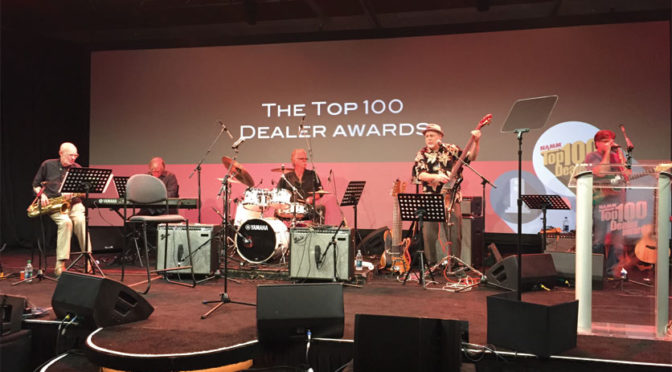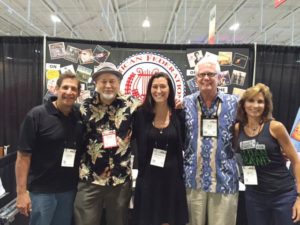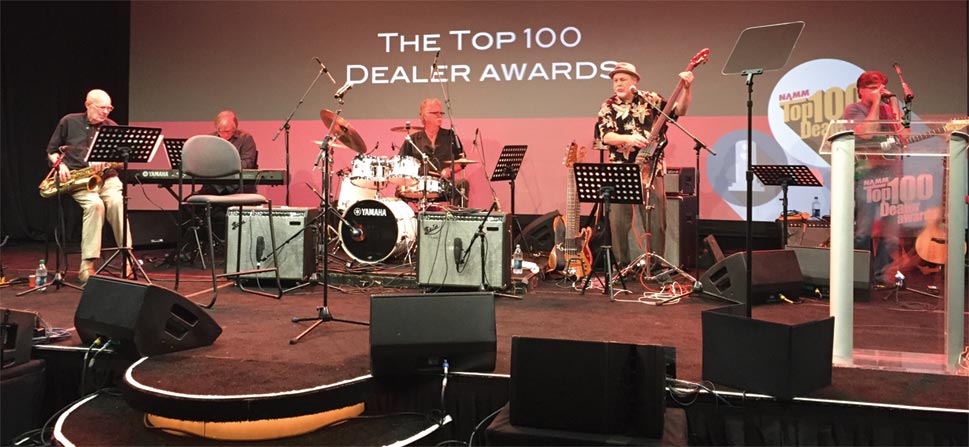Every once in a while I hear someone complain about how bad things are. We all have bad days, sometimes bad weeks. Maybe the gigs aren’t coming in as fast as you want. Maybe your calendar is full, but the gigs suck. Maybe you feel your career should be at a higher level, but you’re still stuck playing for just over scale at a place that doesn’t appreciate you. If you believe it, it must be so.
C’mon, lighten up. You could be a Walmart greeter or be doing telemarketing from a Third World country. Success or a decent break could just be a couple of choruses away.
When you think you’re stuck in a rut and serving a sentence of playing at senior homes and performing scale work at one of the local saloons, you never know who’s going to hear you and help take you or your group to a higher level. You have to be on top of your game, if you have any aspirations of getting to a higher level.
Don’t make the mistake of playing less than your best, just because a gig is the pits. If you believe you’re going nowhere, who’s to argue with you? You are the prophet of your own destiny.
How many times have these negative words and weasel phrases come out of your mouth:
“Nobody wants to hire live music
anymore.”
“You can’t make a living playing music in this town.”
“I’ll quit before I have to pay-to-play.”
“We’re lucky to get scale.”
“I hate playing this crap.”
“Nobody wants to hear good music anymore.”
“Clubs can’t pay musicians what they’re worth.”
If this is starting to sound familiar, you have two options:
1) Quit
2) Do something about it
If quitting is your option, that’s your prerogative. If you’d rather do something about it, then just don’t sit around waiting for the phone to ring. Forget the self-pity, the negativity, and the whining. Get yourself a better website, a decent updated demo video, and a quality promotional package that you can post online.
Take your social media skills to another level. Start using the phone for a little outbound telemarketing and ask for referrals. Ask yourself how bad you want more or better work? What are you willing to give up for it? Nothing comes easy. You get what you give. Are you willing to play more cover songs, if you like just doing originals? Are you willing to travel a little more, or even move if it’s necessary? Are you networking with other people in your local? Have you done a recent recording that shows your best talents? Do you have a separate brochure just for corporate work? Have you made friends with the media? Are you getting PR from them regularly? Do the guys that do morning drive on your local radio stations know you, mention you once in a while, or even play your stuff? Do you add to your e-mail list regularly? Do you occasionally send out mailings by snail-mail?
What can you do this week to get you more work or better work next week? Do a little soul-searching. Are you using the Musicians Performance Trust Fund to your best advantage so you can get exposure and become a public service to your community as well? Are your chops as good as they can be? Do you run circles around most of the other musicians in your area, or could you stand a little woodshedding to polish up your talent? Is your library of tunes current, or do you rely on what you’ve already got in the can?
You are what you believe. Attitude is important. Keep trying something new until success starts to smack you in the face. Above all, don’t complain. If you think you’re going backwards, you are. You’re an AFM member, a professional musician, and you have the inside track. Maybe it’s time to reshuffle and expand your horizons beyond the next block. Remember, if you do what you’ve always done, nothing’s going to change. How badly do you want better work? Do you want to take your career to the next level badly enough to actually do something about it right away?
You are what you believe. Those big breaks don’t just come out of nowhere. You have to make them happen.










